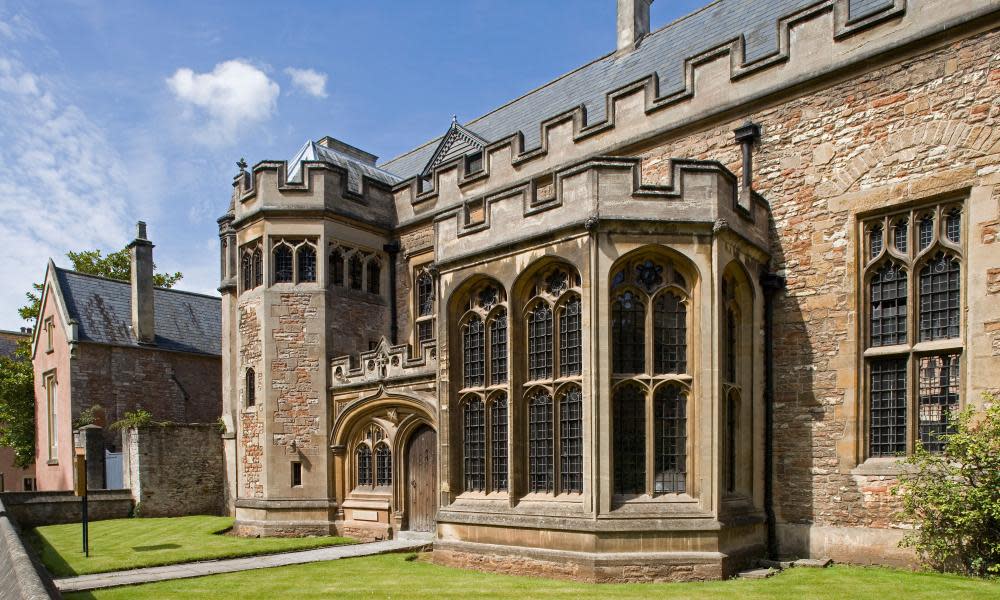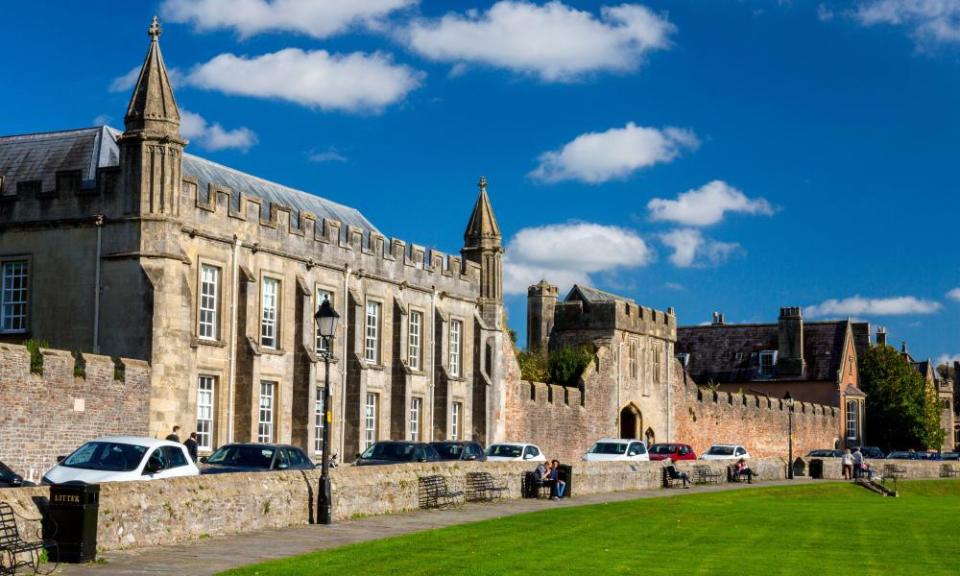Church plan to sell deanery ‘puts profit before community’

A 15th-century building in Wells, Somerset, England’s smallest city, is at the centre of a controversy that has led local campaigners to accuse the Church of England of “riding roughshod over community interests”.
The Old Deanery, part of the ancient cathedral estate, is being sold by the church after it moved its diocesan offices out of the Grade I listed building to new premises.
A community group, backed by the council, a local heritage organisation and the Conservative MP offered to buy the building for £1.25m, wanting to create an art gallery or museum, cafe and social hub. Their proposals included a profit-sharing partnership with the church. The venture, they argued, would create jobs and provide a space for “vibrant local activities of all kinds”.
“The church’s response was ‘we don’t want to know,’” Geraldine Peacock, a founder member of the Old Deanery Project and a former chair of the Charity Commission, told the Observer. She said the C of E was claiming that charity law required it to accept the highest possible price for the property. “The church has apparently received an offer of £1.6m from a private individual.”
But, she added, the church was misinterpreting the law. According to Charity Commission guidance, social value should be taken into account when determining whether the sale of a charity’s property maximises its assets, she said.
The community group fears the Old Deanery, which overlooks the medieval cathedral, could be redeveloped. “It would be a dreadful shame if it was turned into modern flats. The building is part of the integrity of Wells,” said Peacock.
The 18,000sq ft Old Deanery is “simply magnificent,” according to the agents handling its sale. “The architecture is as varied as it is stunning. The house is a treasure trove of rare and remarkable features; gargoyles on the parapets, imposing and original flagstones under foot, glittering stained glass in the windows, Jacobean panelling on the walls, and recessed window seats that sit beneath grandiose architectural styling.”
The building offers a “multitude of opportunities – both residential and commercial” to new owners, the agents add.
A spokesperson for the Diocese of Bath and Wells said there had been “many hours” of discussions with the community group, and the diocese was considering a number of offers for the property.

The church “was aware that wider considerations can be taken into account when disposing of charitable property, including issues of community benefit”, but added that “the proceeds will also help to relieve some of the financial burden on parishes”.
The row over the sale of the Old Deanery echoes the blocking of a plan to convert a former church school in Arkengarthdale, in the Yorkshire Dales, into affordable housing. The local parish council, backed by the Diocese of Leeds, rejected an offer from a community organisation, citing a legal requirement to accept the highest bid for the property.
Referring to the sale of the Old Deanery in Wells, Stephen Stubbs, chair of the Upper Dales Community Land Trust, said: “We thought ours may be an isolated case, but it has become clear that similar community asset stripping is happening elsewhere. It would appear that money is the only motivation.”
The Diocese of Leeds is also embroiled in a dispute over another former C of E village school in Rathmell, north Yorkshire. The building – owned by a charity, the Rathmell School Trust – has been used as a community hub since the school’s closure three years ago. But the diocese intends to “dispose” of the charity’s assets as it is no longer used for religious educational purposes. The church was “trying to snatch away our little charity in pursuit of their own greed,” said Jacky Frankland, the trust’s treasurer.
A spokesperson for the Diocese of Leeds said it was “committed to positive conversations with the local trustees of any closed school site, including those at Rathmell” but it was concerned that “some of the trustees are no longer acting in line with the charitable objects of the trust or Charity Commission guidance”.
The diocese had not benefited financially from the sale of the former Arkengarthdale school, “nor would it benefit from any potential sale of the former Rathmell school”.
David Blunkett, the former Labour home secretary, is backing calls for a review of the rules governing charities’ disposal of assets. He said: “It’s eight years since a bill was piloted through parliament to place emphasis on social value and not just monetary gain… Regrettably, not all those operating in the social sector or delivering services have got the message.”


